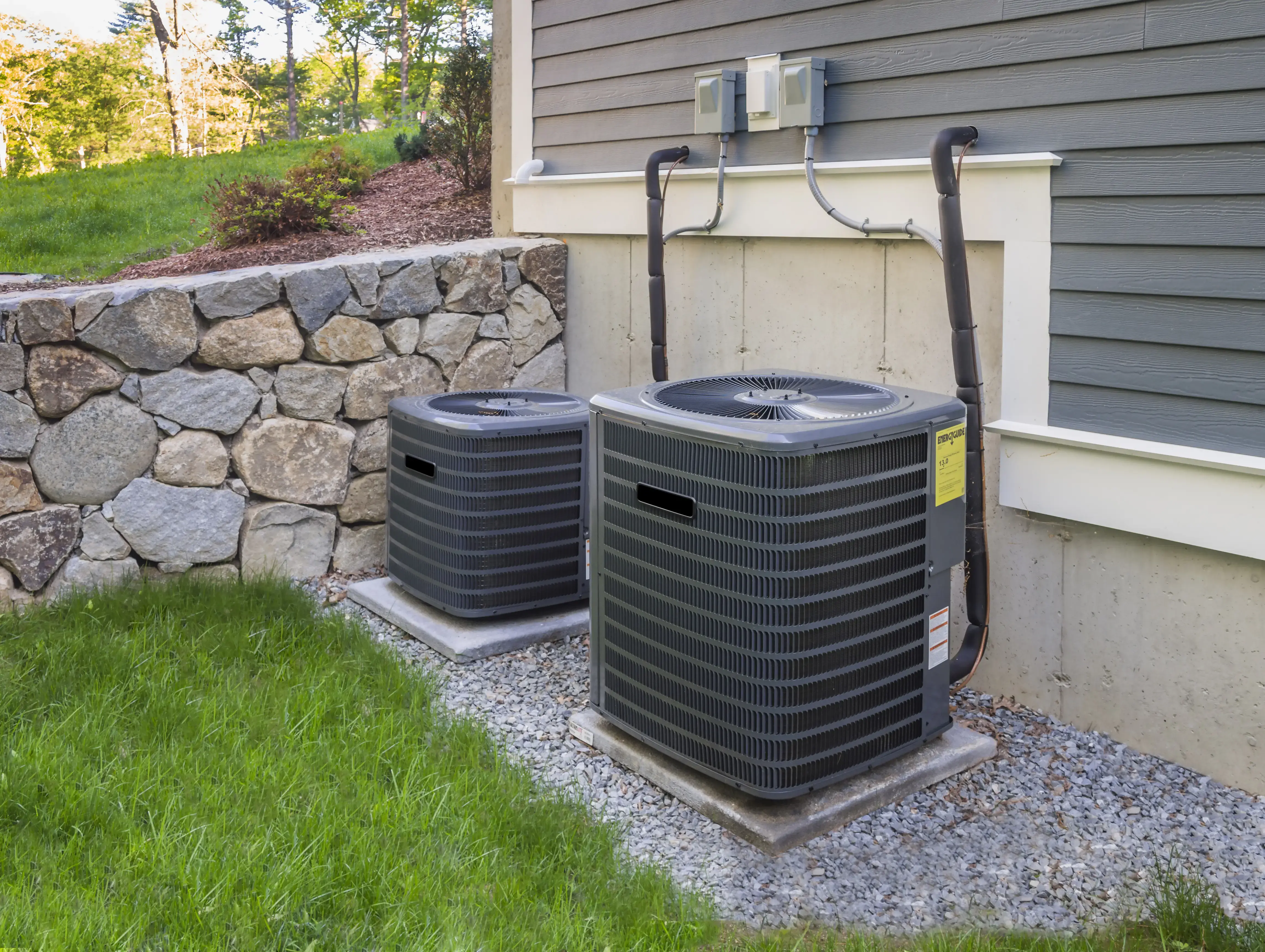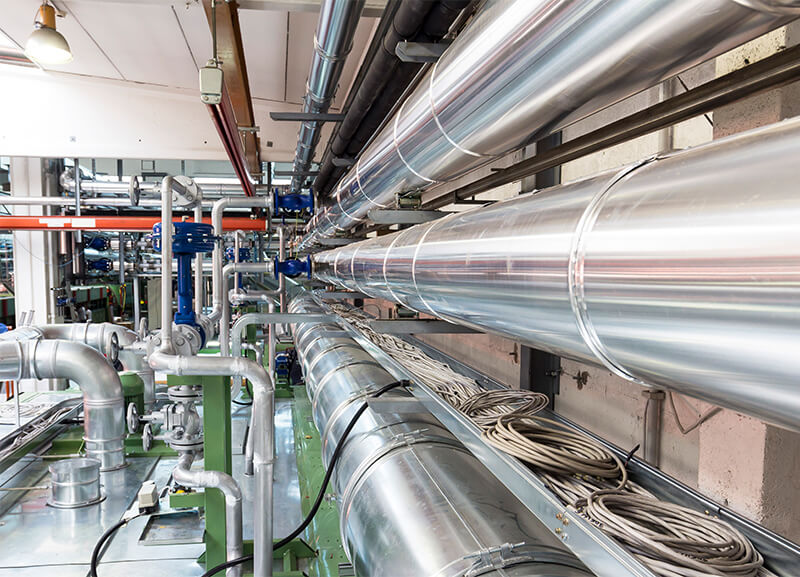Learn how HVAC experts support long-term indoor climate control
Checking Out the Necessary Parts of an Effective Heating And Cooling System
A reliable cooling and heating system is built on numerous essential parts that work in consistency. Each component, from the thermostat to the ductwork, plays a necessary function in maintaining comfort and energy performance. Understanding these components is critical for enhancing efficiency and boosting indoor air top quality. As one checks out these components, the complex connections in between them disclose insights into enhancing total system effectiveness. What specific variables add most to this effectiveness?
The Duty of the Thermostat in Cooling And Heating Effectiveness

Typically ignored, the thermostat plays a critical role in the performance of Heating and cooling systems. This little device functions as the main control facility, managing temperature settings and guaranteeing suitable comfort within a room. By accurately noticing the ambient temperature, the thermostat communicates with the home heating, ventilation, and air conditioning units to preserve the wanted environment
An effective thermostat minimizes power usage by triggering the cooling and heating system just when necessary, consequently preventing extreme home heating or air conditioning. Modern smart and programmable thermostats boost this efficiency additionally by allowing individuals to set schedules and remotely change setups, adapting to everyday routines.
The placement of the thermostat is crucial; incorrect area can lead to imprecise temperature analyses, resulting in inefficient operation. On the whole, a well-functioning thermostat not only enhances convenience but also adds markedly to power cost savings and the durability of the cooling and heating system.
Understanding the Importance of Air Filters
Air filters serve a crucial feature in cooling and heating systems by assuring that the air flowing within a space stays healthy and tidy. These filters catch dirt, irritants, and various other contaminants, avoiding them from being recirculated throughout the environment. By capturing these bits, air filters add to enhanced interior air high quality, which can considerably benefit owners' wellness, specifically those with allergic reactions or breathing problems.
Additionally, keeping tidy air filters boosts the effectiveness of HVAC systems. Clogged up filters can restrict air movement, causing the system to work tougher to keep wanted temperatures, leading to increased power usage and greater energy expenses. Consistently replacing or cleansing filters is a vital maintenance step that can extend the life expectancy of heating and cooling tools. Eventually, recognizing the relevance of air filters permits house owners and structure supervisors to take positive measures to guarantee a well-functioning, efficient HVAC system that promotes a comfortable and risk-free indoor setting.

The Capability of the Furnace and Heatpump
Heaters and warm pumps are important elements of heating and cooling systems, in charge of giving heat during chillier months. Heaters run by heating air via combustion or electric resistance, then dispersing it throughout the home through air ducts. They commonly offer rapid heating and can be fueled by all-natural gas, electrical power, or oil, depending upon the system type.
Alternatively, heat pumps transfer heat instead than generate it. They draw out heat from the outdoors air or ground, also in low temperatures, and move it inside your home. HVAC experts. This dual functionality enables warmth pumps to also offer cooling in warmer months, making them flexible options for year-round environment control
Both systems need appropriate upkeep to assure efficiency and longevity. While heating systems master extreme chilly, warm pumps can be beneficial in modest environments. Understanding their unique performances help homeowners in picking one of the most ideal option for their home heating needs.
Discovering the Air Conditioning System
The a/c unit is a vital component of HVAC systems, readily available in different kinds to fit different requirements. Recognizing the performance rankings of these systems is vital for making educated selections regarding energy usage and expense. This area will certainly discover the diverse kinds of ac unit and clarify just how effectiveness scores effect performance.
Sorts Of Air Conditioners
While various aspects affect the selection of cooling systems, understanding the different types available is important for property owners and structure managers alike. Central air conditioning conditioners are made to cool entire homes or structures, making use of a network of air ducts for airflow. Window units provide an even more local option, perfect for single spaces or little rooms. Mobile a/c give versatility, enabling individuals to move the unit as needed. Ductless mini-split systems are one more option, incorporating the effectiveness of main systems with the comfort of zoning, as have a peek at these guys they call for no ductwork. Geothermal systems harness the earth's temperature for energy-efficient cooling. Each kind comes with distinctive advantages, making educated options important for efficient climate control.

Efficiency Rankings Clarified
Comprehending performance scores is essential for choosing the best air conditioning system, as these metrics offer insight into the system's performance and power intake. The most common rating for a/c unit is the Seasonal Power Performance Ratio (SEER), which gauges the cooling outcome throughout a regular cooling period separated by the overall electrical energy input. A greater SEER suggests better performance. Additionally, the Energy Efficiency Proportion (EER) is utilized for determining effectiveness under particular problems. Another vital metric is the Energy Star qualification, which represents that a system satisfies strict power performance guidelines. By examining these ratings, consumers can make educated selections that not just optimize comfort however likewise reduce energy expenses and environmental impact.
The Value of Ductwork and Air flow
Reliable ductwork style and air movement administration play critical roles in the total efficiency and efficiency of cooling and heating systems. Correct ductwork warranties that conditioned air is dispersed evenly throughout a space, lessening temperature variations and enhancing comfort. Properly designed ducts reduce resistance to air movement, reducing the work on cooling and heating equipment and eventually decreasing energy intake.
Airflow management involves tactically putting vents and registers to enhance the flow of air. This avoids common concerns such as cold or warm places, which can take place when airflow is blocked or improperly balanced. In addition, the ideal air duct products and insulation can better boost performance by minimizing warm loss or gain throughout air transit.
An efficient ductwork system not only contributes to power savings however can also lengthen the life-span of a/c tools by decreasing unnecessary stress (HVAC experts). Recognizing the relevance of ductwork and air movement is necessary for accomplishing peak Cooling and heating system efficiency.
Routine Upkeep Practices to Boost Performance
Routine upkeep methods are vital for guaranteeing peak performance of cooling and heating systems. These methods consist of regular assessments, cleansing, and needed repairs to keep the system running effectively. Routinely altering air filters is crucial, as stopped up filters can block air flow and lower performance. Additionally, technicians ought to check and clean evaporator and condenser coils to prevent getting too hot and energy waste.
Annual professional evaluations are likewise advised, as qualified service technicians can identify prospective issues before they rise. Lubricating relocating components decreases damage, basics adding to a much longer life expectancy for the system. In addition, guaranteeing that the thermostat operates appropriately aids in preserving ideal temperature control.

Often Asked Questions
How Usually Should I Replace My Thermostat?
Thermostats ought to typically be changed every 5 to 10 years, relying on usage and innovation developments. Normal checks are suggested to assure peak performance, particularly if experiencing irregular temperature control or raised power expenses.
What Dimension Air Filter Is Best for My HVAC System?
The finest size air filter for a cooling and heating system view it differs by unit design. Usually, it's crucial to get in touch with the owner's manual or examine the existing filter measurements to ensure peak efficiency and air high quality.
Can I Set Up a Warm Pump Myself?
Mounting a heatpump separately is possible for competent individuals, yet it needs understanding of electric systems and regional codes. Employing a professional is suggested to ensure proper installation and excellent system efficiency.
How Do I Know if My Ductwork Is Reliable?
To establish ductwork effectiveness, one should look for leaks, step air flow at vents, inspect insulation quality, and evaluate temperature differences between supply and return ducts. Specialist assessments can provide complete insights right into general efficiency.
What Are Signs My Heating And Cooling Requirements Immediate Upkeep?
Indicators that a heating and cooling system needs prompt maintenance include unusual sounds, irregular temperature levels, boosted power expenses, unpleasant smells, and regular cycling. Resolving these concerns promptly can protect against further damage and guarantee optimal system efficiency.
Air filters offer a necessary function in Cooling and heating systems by assuring that the air distributing within an area remains healthy and clean. In addition, keeping clean air filters boosts the effectiveness of Cooling and heating systems. Ductless mini-split systems are another choice, integrating the effectiveness of central systems with the benefit of zoning, as they need no ductwork. Recognizing effectiveness ratings is necessary for choosing the ideal air conditioning system, as these metrics give insight into the system's performance and energy usage. The ideal size air filter for a HVAC system varies by device design.